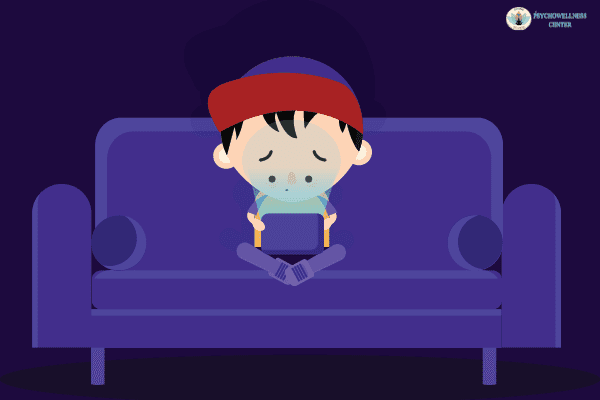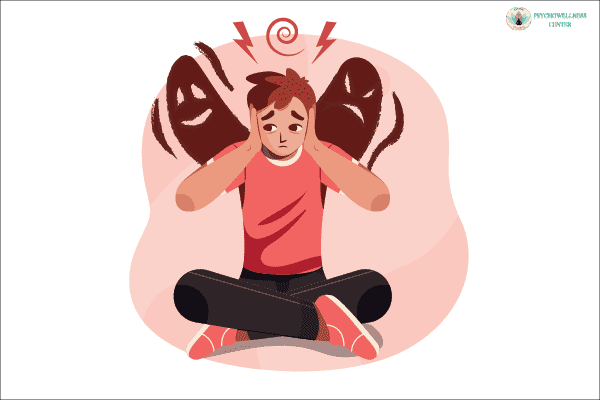How to Cope with Mental Health After a Layoff
.png)
Being laid off is a real problem with significant life-changing implications. Therefore, it makes sense why the uncertainty it causes would cause people to feel strong emotions like fear and anxiety. When someone is laid off, they may experience a great deal of anxiety and run the risk of visualizing all the possible ways that their life could go wrong and completely collapse. When there is no real understanding of what might or might not happen, this can be overly burdensome. If you worry about your job security all the time, your mental health may suffer. Nobody likes to spend a lot of time in a situation where there is uncertainty. Job losses could lead to depression. Without our jobs, we simply cannot imagine ourselves. Working is stressful for both employers and employees. Being let go may provide some people with the much-needed escape from a challenging workplace, or it may present an opportunity for them to explore new possibilities. However, for some individuals, losing a job can have a serious disadvantageous impact on their mental health.
How to Look After Your Mental Health If You're Laid Off
A person's confidence can be shaken, and losing a job that not only pays the bills but also allows them to pursue their passions can cause stress, anxiety, depression, and rage. Feeling hopeless, helpless, and miserable all at once might be common. However, you must tap into your inner strength of character to recover from a layoff and regain your confidence. As you prepare for a layoff, give yourself space to process the range of emotions you might feel. Dr. R.K. Suri advises using these simple strategies to combat the negative psychological effects of being laid off.
Identify your emotions: After a layoff, it's common to experience distress, fear, and anger. Avoid attempting to suppress your feelings. Instead, give yourself permission to mourn and process your feelings.
Establish a routine: It doesn't have to be strict, but adding some structure to your daily activities can help you feel more normal. Make time for self-care as well as planning or job searching. Don't forget to include time spent socializing with family or friends.
Seek social support: Turn to your friends and family for emotional support during this trying time. Don't underestimate the value of having a strong support system as you deal with the effects that losing a job has had on your mental health.
Adopt a logical mindset: You should be ready for setbacks because it might take a few months to find a new job. For instance, a recruiter might not get back to you. When things don't turn out the way you had hoped, you won't be as disappointed if you accept the possibility that you might not get the job of your dreams the following week. It's okay if it takes longer than you had anticipated to find a job that - you're excited about and meets the majority of your requirements for pay and benefits.
Try to practice some self-compassion if you find yourself feeling overburdened or afraid as you look for a new job. That takes time, regardless of your work experience, and realizing this will help you stay motivated. Learn more under the guidance of the Best psychologist in India or search for the Best psychologist Delhi.
Write: List your thoughts, feelings, and ideas in writing. Writing can be a very beneficial way to express negative emotions and to make any unclear issues for you. Keeping your mind clear can be achieved through journaling, letter writing, or even list making.
Try practicing breathing techniques: When you're feeling stressed out, taking a deep breath can help you to calm down. Despite the wide variety of breathing exercises available, the following advice can help you make the most of your breathing session. Wherever it's possible, eliminate all mental and physical distractions. When there are background distractions like loud noises, it is very difficult to feel calm. Breathing exercises may still be beneficial even if you are unable to find a quiet area. Try to focus all of your attention on the in- and out-breaths of your body. This is one method for blocking out distractions.
Stay positive: Keep in mind that nobody is to blame for layoffs, and losing your job is only a temporary setback. Be in the company of people who inspire you and serve as a reminder of your best qualities.
It's crucial to look after your mental health after losing your job. By relying on your own resources and social network, you may be able to overcome your fears and disappointment about losing your job. Recognizing when you require professional assistance is also crucial. If your usual coping mechanisms don't seem to be helping you deal with your stressors, you might benefit from going to an Online counselling session or seeing a therapist. For practical assistance, you might find a Career counselling or coach helpful. Processing your experience and receiving support while making decisions are both possible with therapy. Asking for a helping hand should never be a source of fear. You might think about talking to a counselor if you still experience mental health problems because they can provide more specialized assistance with healing.
Additionally, you may schedule an appointment with the top professional psychologists and receive Mental health counseling at the Psychowellness Centre, which has many locations in Delhi NCR, NOIDA, Faridabad, Janakpuri, Dwarka, and Vasant Vihar.
Contribution: Dr (Prof) R K Suri, Clinical Psychologist, life coach & mentor TalktoAngel & Ms. Swati Yadav, Psychologist.




SHARE